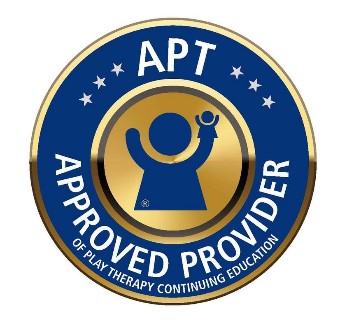Basics of Non-Directive Play Therapy Skills
Learn the basic skills used in non-directive play therapy.
Description
A foundational exploration into the essential techniques and principles employed in non-directive play therapy. Participants will learn the art of non-directive communication, active listening, and creating a safe space for clients to engage in spontaneous play. By incorporating hands-on exercises and case studies, participants will develop practical skills in utilizing art, toys, and other expressive modalities to help individuals express their emotions and navigate challenges. This class serves as an invaluable introduction for those seeking to build a strong foundation in non-directive play therapy skills, fostering a supportive atmosphere where clients can freely communicate and process their experiences. This class is a prerequisite for Facilitating Familial Encouraging Connection Therapy (FECT) with Parents/Caregivers of Play Therapy Clients for students who have not taken Beginning Adlerian Play Therapy and have limited training in play therapy. It is also open to all other therapists who want to attend.
 6 Live Webinar CE hours (Non-Contact) (6 hours on Play Therapy Skills and Methods). This workshop meets APT’s definition of “Live Webinar.”
6 Live Webinar CE hours (Non-Contact) (6 hours on Play Therapy Skills and Methods). This workshop meets APT’s definition of “Live Webinar.”
APT Approved Provider 99-055

League of Extraordinary Adlerian Play Therapists (LEAPT) has been approved by NBCC as an Approved Continuing Education Provider, ACEP No. 7402. Programs that do not qualify for NBCC credit are clearly identified. League of Extraordinary Adlerian Play Therapists (LEAPT) is solely responsible for all aspects of the programs.
Agenda
9:00 AM Start Morning Session
10:30 AM Break (15 Minutes)
12:00 PM Lunch (60 minutes)
1:00 PM Start Afternoon Session
2:30 PM Break (15 minutes)
4:30 PM End
Objectives
At the end of this workshop, participants will be able to:
- Explain the rationale for using non-directive play therapy skills to build relationships.
- Demonstrate the play therapy skill of tracking.
- Demonstrate the play therapy skill of reflecting feelings.
- Demonstrate the play therapy skill of restating content.
- Demonstrate the play therapy skill of returning responsibility.
- Demonstrate the play therapy skill of limiting.